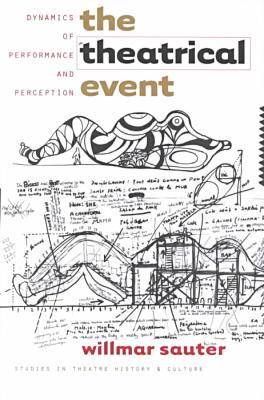Studies Theatre Hist & Culture
1 total work
"The Theatrical Event" discusses the objectives of theatre studies by focusing on the communicative encounter between performer and spectator - the theatrical event. A theatrical event includes the presentation of a performance and the attention of an audience; in this sense, every performance - on stage or in the street, historical or contemporary - that is watched by an audience is a theatrical event. The concept underlines the "eventness" of all encounters between performers and spectators. In the first part of the book, Willmar Sauter presents various models for the analysis of theatrical events, examining the relationships between performance and perception and the interaction between the performative event and its context. Using examples from ancient and recent theatre history and discssing traditional and nontraditional approaches to theatre theory, he builds on a paradigmatic change in the concept of theatre. Constructs such as playing culture (as opposed to written culture), theatrical communication, theatricality and theatre as a model of cultural event are brought into focus and their methodological advantages explored.
The second part of the book uses the theoretical groundwork of the first part to enhance a variety of topics, including such legends as Sarah Bernhardt and other historical phenomena such as a Swedish Renaissance play, Strindberg's ideas on acting, the question of ethnicity in the political theatre of the 1930s, and critical writings on contemporary performances. Sauter examines how Robert Lepage's staging of "A Dream Play" is viewed by critics and scholars and analyzes Dario Fo's intercultural transfer to outdoor performances in Stockholm and the unusual sensationalism of Strindberg's "Miss Julie".
The second part of the book uses the theoretical groundwork of the first part to enhance a variety of topics, including such legends as Sarah Bernhardt and other historical phenomena such as a Swedish Renaissance play, Strindberg's ideas on acting, the question of ethnicity in the political theatre of the 1930s, and critical writings on contemporary performances. Sauter examines how Robert Lepage's staging of "A Dream Play" is viewed by critics and scholars and analyzes Dario Fo's intercultural transfer to outdoor performances in Stockholm and the unusual sensationalism of Strindberg's "Miss Julie".
